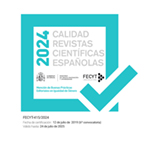#DroneHackademy: Aerial countervisuality and citizen science for UAVS as social technology
Abstract
Drones are a dark technology (Lichty). The military drones that kill civilians are unevenly distributed, geographically. The video "Our Drone Future" (Cornell) imagines a scenario where UAVs (Unmanned Aerial Vehicles), with their technologies and capabilities, come to be pervasive in the skies of our future cities. The panoptic vision of the drone is a fundamental part of contemporary “complex of visuality” defined by the military-industrial complex, according to Mirzoeff. He proposes "the right to look" as a form of opposition to this alliance of visuality and power. The right to look from the skies as a practice of contravisuality using drones is claimed and exercised by an increasing number of hackers, artivists, social scientists, independent journalists and environmental activists, such as Mark Devries (FarmDrones) or Lot Amorós (Guerilla Drone, Flone). In order to investigate and act in the present on "Our future drone", we propose the creation of a citizen laboratory and a learning community in the use of UAVs as social technology. Drone Hackademy joined for a week ten representatives of collectives from Rio de Janeiro and other Brazilian cities. Participants were teached how and why to protect themselves from UAVs. Activities included the construction of free hardware and software UAVs such as Flone; and the production of an aerial mapping of the local community resisting eviction in the area annex to the Olympic Park.Downloads
Publication Facts
Reviewer profiles N/A
Author statements
- Academic society
- N/A
- Publisher
- Grupo de Investigación Cultura Digital y Movimientos Sociales. Cibersomosaguas
Article download
License
In order to support the global exchange of knowledge, the journal Teknokultura is allowing unrestricted access to its content as from its publication in this electronic edition, and as such it is an open-access journal. The originals published in this journal are the property of the Complutense University of Madrid and any reproduction thereof in full or in part must cite the source. All content is distributed under a Creative Commons Attribution 4.0 use and distribution licence (CC BY 4.0). This circumstance must be expressly stated in these terms where necessary. You can view the summary and the complete legal text of the licence.













